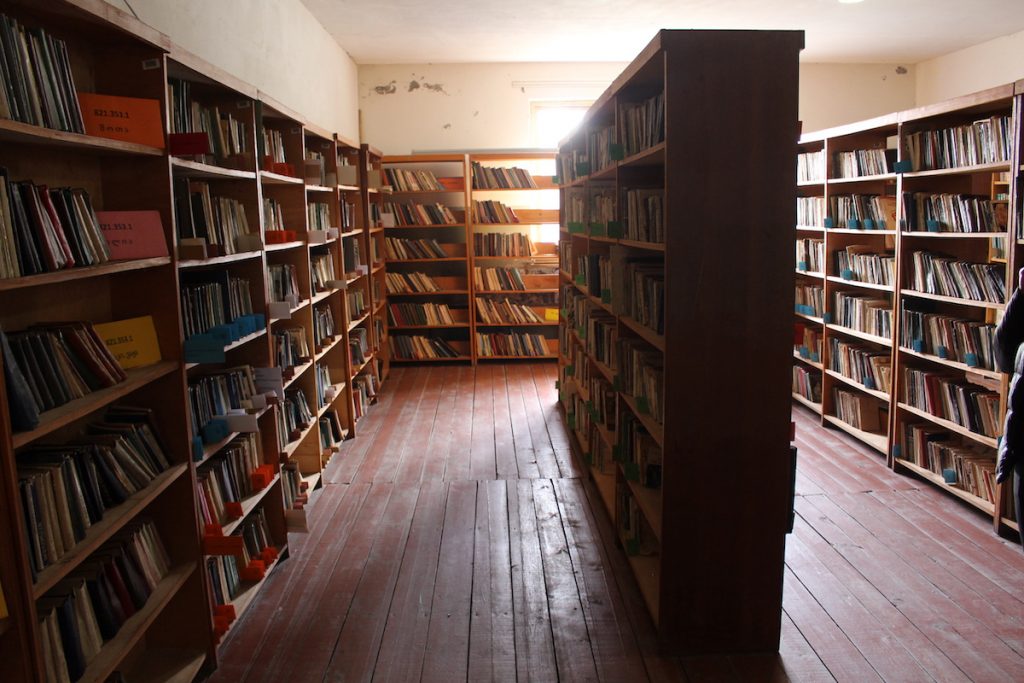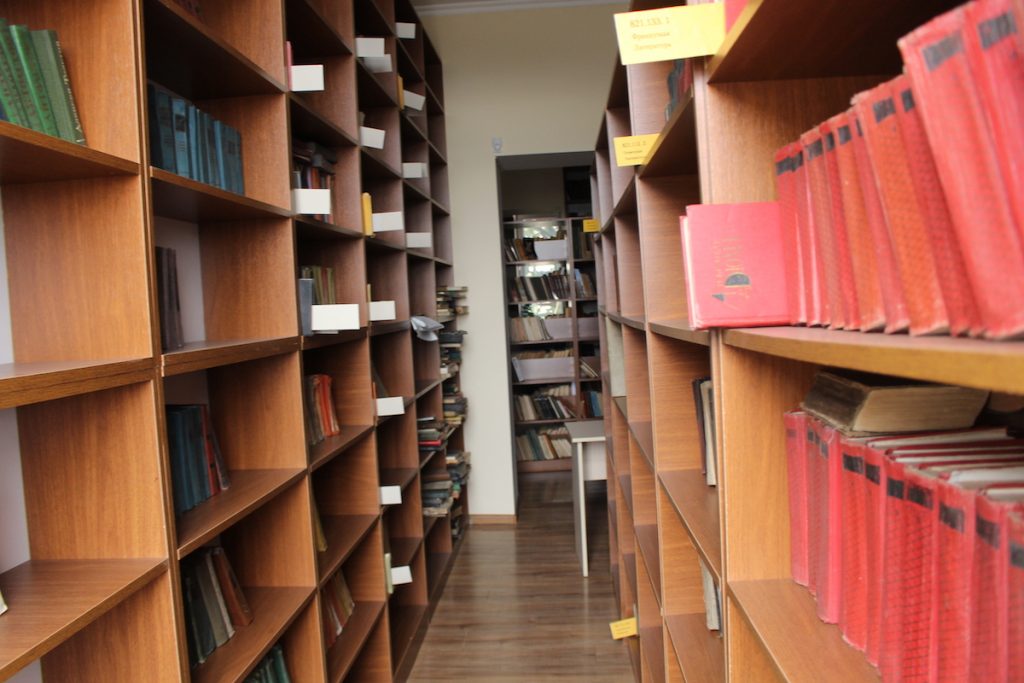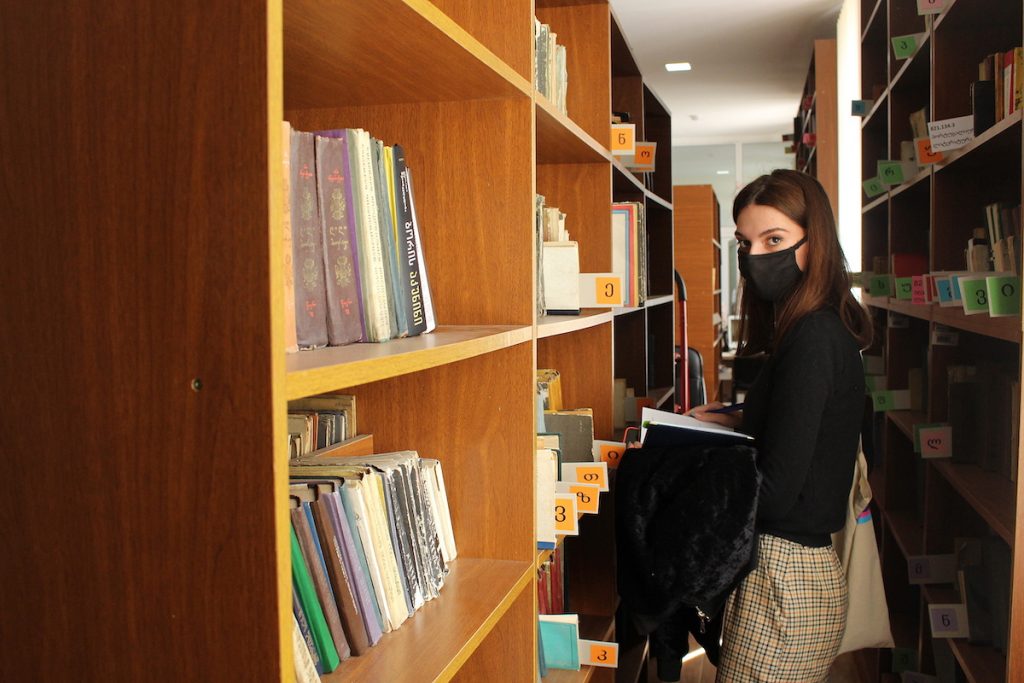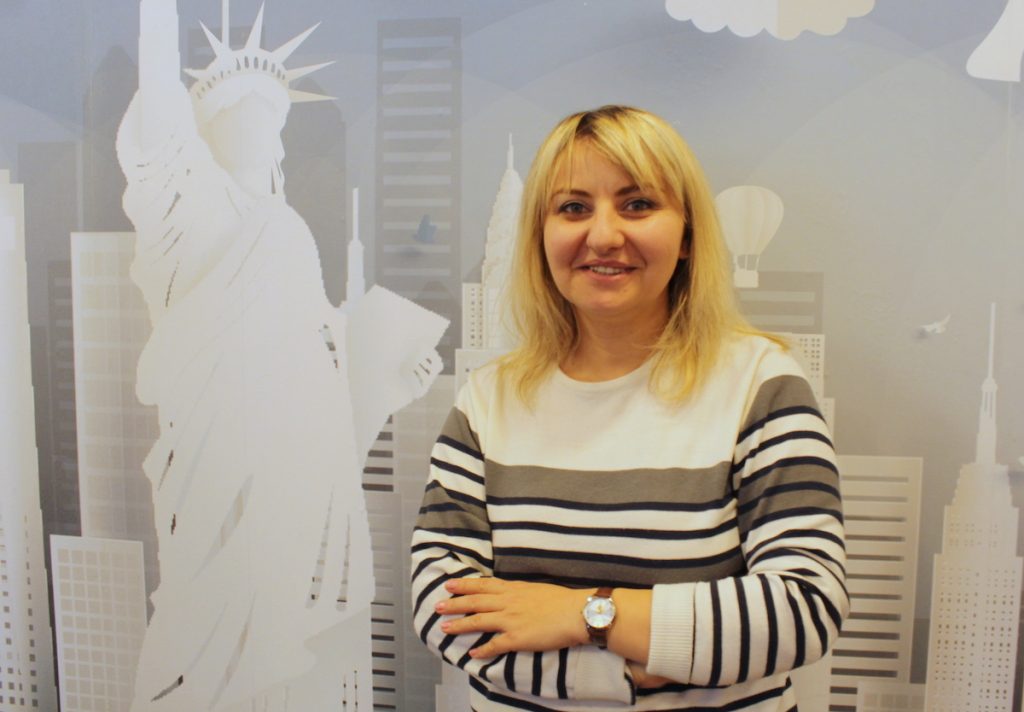Abandoned libraries in Zugdidi – why do libraries in this small Georgian town fail to attract young people?
After almost a year of pandemic, Central Zugdidi library opened its door for readers again at the beginning of March.
New director Besiki Arakhamia took office just when the pandemic started last year and yet he cant wait to bring it to life – not only from the pandemic slumber, but from a slumber which has lasted for decades.
“We need to attract more young people, especially those from universities. They need to know we have something to offer,” states the director.

The case of Central Zugdidi Library
Zugdidi is a town in Western Georgia with a population of 45,000, which is located on the administrative border of Abkhazia.
The Central Zugdidi library offers different genres of books, newspapers, reading room and one computer for public use. Yet, most of the visitors only come to borrow a book and then leave.
“I used to go to the library, but with the pandemic, everything has changed. I prefer to read books at home or on the internet. Most often, I use social media to get the latest news,” describes Zugdidi citizen Eldari Kezua.
According to him, to attract more people, the offer of the books in library needs to be extended and the building renovated.
Arakhamia confirms that more new and modern books are needed. The problem is that the library only has 5,000 GEL per year to equip the central library with new books, as well as each of its 26 branches in surrounding villages.

Even though thousands of libraries were equipped and updated in the past years, it is still not enough. Many of the town libraries still have only one computer for public use and also new books are needed.
Thus, many of the little libraries extend their offer also thanks to the donations from local citizens. “I know all the books here. They are like children to me. Sometimes I just go and pet them,” says the librarian Cicana Toloraia from Khurcha, who asks readers to donate their books to the library, as she would like to extend the offer.
For that purpose, the library’s use of social media is needed. “Young people need to be encouraged to come to the library, for example through short video and photo teasers, showing the new books and the space,” says Kezua. Using social media is a big task for the library, as many librarians still don’t have any practical skills in this field.

The future of libraries is not about books only
The director says there are more reasons for the lack of interest in between youngsters. “In 2020 the Municipality conducted a survey among 247 people about what are the needs of young people of Zugdidi.
The most common answer was cinema, a music club, but ‘library’ ended up in ninth place. Young people are just not interested in books anymore,” worries Arakhamia.
As modern society is based on digitalization and technologies, the libraries need to follow up on these trends. “Thanks to modern technologies, young people can search for information on internet whenever they decide to. The existence of printed books is not crucial for them anymore. If the libraries should survive this era, they need to provide nice gathering places and free access to internet and technologies,” president of the Library Association Rusadan Asatiani says.

The director of the National Parliamentary Library of Georgia Giorgi Kekelidze, has even broader expectation from the future libraries. “To attract young people to libraries, it is essential to transform them into multifunctional centers. The centers should meet all the necessary requirements by arranging exhibitions, discussion clubs, reading rooms and internet,” states Kekelidze.
Kekelidze states changes in libraries are needed. Still, he believes, printed books have a future. “A printed book is an item, which is not only a text, but also an item reflecting different emotions. As long as a person has the desire to feel these emotions, a printed book will exist.”
Heading towards western standards
The director of Zugdidi Central Library tries to adapt the library to the needs of new generation readers.
“Our goal is to follow trends from libraries in western countries and make the Zugdidi Central Library look more like those we’ve seen in Europe,” states the director. That means modern equipment, cozy space to read and work, and new activities. If the books failed to interest young people, he thinks clubs and non-formal education workshops might succeed.

That’s why he puts his faith in youth projects in library as well as in the cooperation with American corner, which has been just renovated and will be open to public from the end of April.
An American corner was developed at the library in collaboration of Zugdidi municipality and the United States Embassy. It aims to promote mutual understanding among Americans and Georgian people by providing American literature both in English and Georgian language and by non-formal education in different fields such as English conversation clubs or social media workshops.
“We offer welcoming environment to those, who want to share their experiences with others. My task is to bring competent people to American corner to share their knowledge,” says the coordinator of American corner Sophie Kvaratskhelia.

So far, the American corner provides English classes online. There are ten volunteers working on their project, including social media management and English classes.
As there are new, renovated and well equipped spaces, Kvaratshelia hopes to extend the activities and bring more people to American corner, as well as to the library. “American corner is a gift for young people. The US Embassy gave half a million dollars to develop modern library for them. They have great opportunity to developed new skills in social media marketing, English communication skills and knowledge about different cultures,” states Arakhamia.
_________________________________________________________________________
In the past, Zugdidi was an important political and cultural center of Mingrelia, but also the whole Georgia. The town developed during the second half of 19th century, when the Didiani palace and botanical gardens were built. Also the first copy of a famous medivial epic poem The Knight in the Panther´s Skin was rewritten and kept in the Zugdidi town.
But due to the Georgian Civil War in 1992-1993, many buildings were damaged and nowadays, many young people are leaving Zugdidi to work or study in the capital. But in Zugdidi, there is also one teaching university, gymnasium and several public and private schools. For its students, the director of the Zugdidi Central Library Besiki Arakhamia wants to create good place for learning and gathering.
The Municipality Central Library in Zugdidi has long tradition. It´s roots goes back to the nineteenth century, when there was the first reading hall opened by the Zugdidi´s Theatricial Society in todays Dadiani park in 1899. The expenses for the building were collected thanks to a theatre play called “Divorce”, which allowed the community to buy two tables, two benches and few copies of newspapers. People would come and read the newspaper by the window, enjoying the quite space of the reading hall.
Only thanks to the reign of Prince David Dadiani of Mingrelia, more handwritten and printed books were later collected.
Recently, the library has four town branches and 27 branches in the surrounding villages. In 2019, there were in total more than 18 thousand readers coming to the library to borrow a book.
The number has lowered during the covid times, as the library must have been closed most of the time last year. “We´ve used the time to renovate the American corner, which we hope will bring more young people to our library,” states the director of the library Besiki Arakhamia.
Nowadays, the library is opened everyday from 9 to 6PM again and from 10 to 5PM on Saturday, but there are still only five people allowed to come inside to read or work in a group.
Otherwise, they could come and borrow the book at the desk. According to the director, readers won´t come inside anyways, as they are still afraid of the coronavirus and won´t take the risk. But from the side of the library, the space is opened for everyone.


















